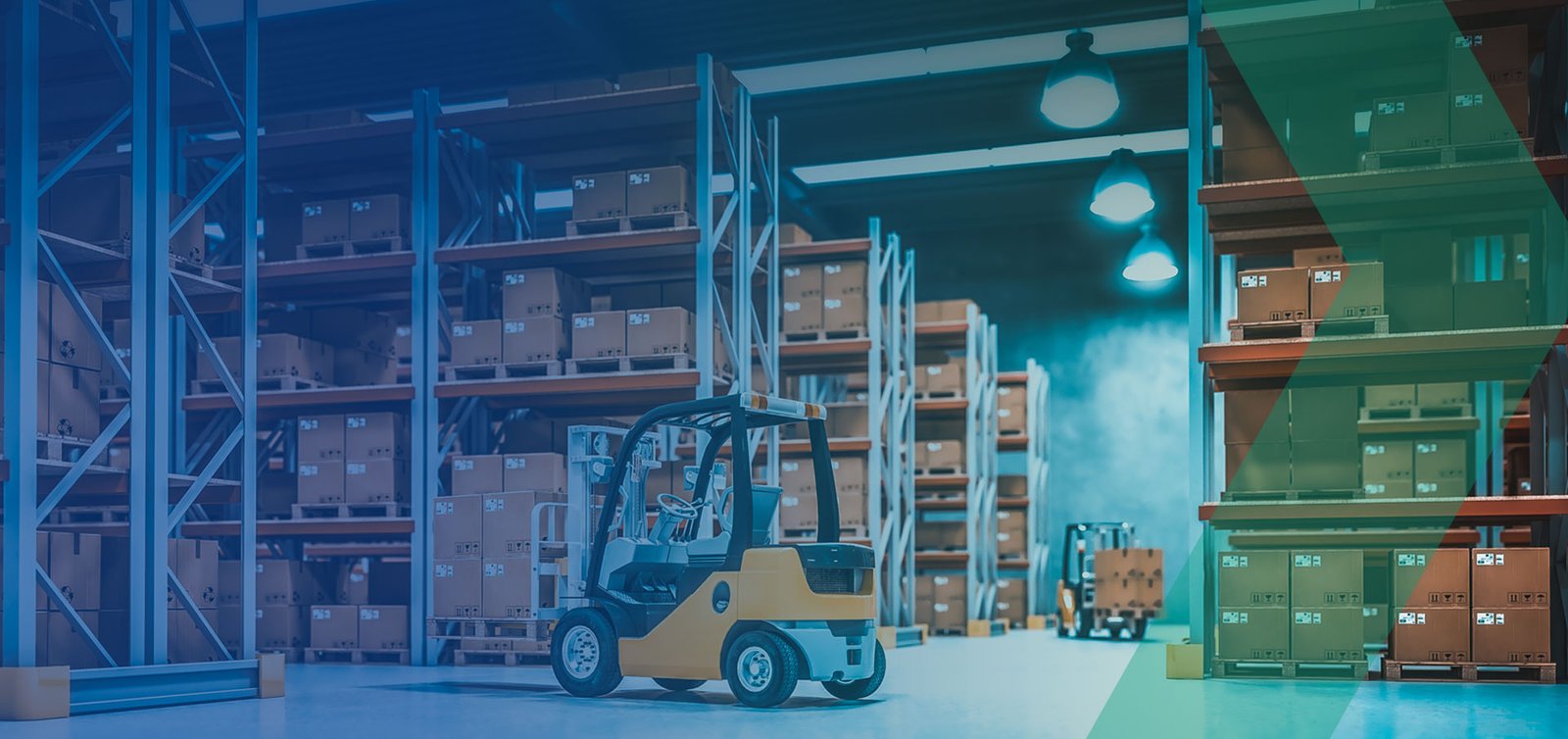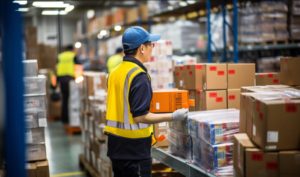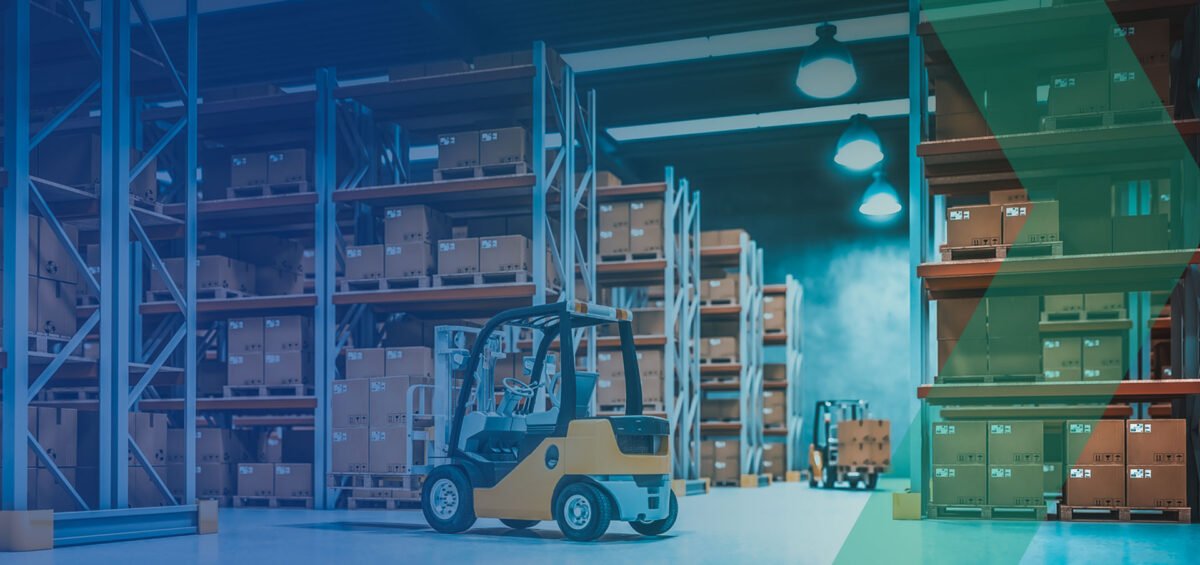Top Warehousing and Logistics Services in UK
 When you think about the backbone of any thriving economy, Warehousing and Logistics Services in UK often come to mind. These sectors are pivotal for ensuring that goods are stored safely and delivered on time. In the UK, warehousing and logistics services play an essential role in the supply chain, facilitating the seamless movement of products from manufacturers to consumers. So, why exactly are these services so crucial, and how do they function within the UK? Let’s dive into the nitty-gritty of it all.
When you think about the backbone of any thriving economy, Warehousing and Logistics Services in UK often come to mind. These sectors are pivotal for ensuring that goods are stored safely and delivered on time. In the UK, warehousing and logistics services play an essential role in the supply chain, facilitating the seamless movement of products from manufacturers to consumers. So, why exactly are these services so crucial, and how do they function within the UK? Let’s dive into the nitty-gritty of it all.
Types of Warehousing Services
Public Warehousing
Public warehouses offer storage solutions to multiple clients on a rental basis. These facilities are ideal for businesses that need flexible storage options without the commitment of long-term leases. They come equipped with various amenities, such as climate control and security systems, to cater to different storage needs.
Private Warehousing
In contrast, private warehousing is owned and operated by companies to store their products exclusively. This type of warehousing is suitable for large businesses with consistent and high-volume storage needs. Private warehouses provide greater control over inventory and can be tailored to meet specific business requirements.
Bonded Warehousing
Bonded warehouses are specially designated storage facilities where imported goods can be stored without paying import duties until the goods are released for sale. This is particularly beneficial for businesses engaged in international trade, as it helps manage cash flow and defer taxes.
Key Features of Modern Warehouses
Advanced Technology
Modern warehouses are equipped with advanced technologies such as automated storage and retrieval systems (ASRS), which increase efficiency and reduce human error. These technologies streamline operations, making the storage and retrieval process faster and more accurate.
Security Measures
Security is a top priority in warehousing. Modern warehouses implement comprehensive security measures, including 24/7 surveillance, access control systems, and alarm systems to protect goods from theft and damage.
Storage Solutions
From pallet racking to mezzanine floors, modern warehouses offer a variety of storage solutions to maximize space and accommodate different types of inventory. These solutions ensure that goods are stored efficiently and are easily accessible.
Logistics Services in the UK
Transportation Management
 Transportation management is a critical component of logistics services, involving the planning, execution, and optimization of the movement of goods. This includes choosing the right mode of transport, route planning, and ensuring timely delivery.
Transportation management is a critical component of logistics services, involving the planning, execution, and optimization of the movement of goods. This includes choosing the right mode of transport, route planning, and ensuring timely delivery.
Inventory Management
Effective inventory management ensures that businesses maintain the right balance of stock – not too much to incur high storage costs, and not too little to meet customer demand. This involves tracking inventory levels, orders, sales, and deliveries.
Order Fulfillment
Order fulfillment encompasses the entire process from receiving an order to delivering it to the customer. This includes order processing, picking, packing, and shipping. Efficient order fulfillment is key to customer satisfaction and retention.
The Role of Technology in Warehousing and Logistics Services in UK
Automation and Robotics
Automation and robotics are revolutionizing the warehousing and logistics industry. Automated guided vehicles (AGVs) and robotic picking systems increase efficiency and reduce labor costs, while also minimizing errors.
Warehouse Management Systems (WMS)
A Warehouse Management System (WMS) is software that provides real-time visibility into a warehouse’s operations. It helps manage inventory, order processing, and labor, ensuring that operations run smoothly and efficiently.
Internet of Things (IoT)
IoT devices are increasingly being used in warehousing and logistics to provide real-time data on the condition and location of goods. This includes temperature monitoring for perishable items and tracking the movement of goods through the supply chain.
Challenges in the Warehousing and Logistics Sector
Brexit Impact
Brexit has significantly impacted the UK warehousing and logistics sector, introducing new customs regulations and border controls. This has led to increased paperwork, delays, and higher costs for businesses involved in cross-border trade.
Supply Chain Disruptions
Global events, such as the COVID-19 pandemic, have highlighted the vulnerability of supply chains. Disruptions can cause delays, shortages, and increased costs, underscoring the need for robust contingency plans and flexible supply chain strategies.
Labor Shortages
The warehousing and logistics sector in the UK faces ongoing labor shortages, exacerbated by the COVID-19 pandemic and Brexit. This has driven the need for automation and has increased labor costs as companies compete for a limited pool of workers.
Sustainability in Warehousing and Logistics
Green Warehousing Practices
Sustainability is becoming a major focus in warehousing, with practices such as energy-efficient lighting, recycling programs, and the use of renewable energy sources gaining traction. These practices not only reduce environmental impact but also lower operating costs.
Eco-friendly Transportation
Eco-friendly transportation solutions, such as electric vehicles and optimized route planning, help reduce the carbon footprint of logistics operations. Companies are increasingly adopting these solutions to meet environmental regulations and customer expectations.
Energy-efficient Warehousing
Energy-efficient warehousing involves the use of insulation, energy-efficient HVAC systems, and solar panels to reduce energy consumption. These measures help warehouses operate sustainably and reduce their environmental impact.
Major Players in the UK Market
DHL
DHL is a global leader in the logistics industry, offering a wide range of services, including warehousing, transportation, and supply chain management. Their extensive network and advanced technology make them a key player in the UK market.
Wincanton
Wincanton is a leading provider of supply chain solutions in the UK, specializing in warehousing, transport, and logistics services. They cater to various industries, including retail, manufacturing, and construction.
Clipper Logistics
Clipper Logistics is known for its innovative logistics solutions, particularly in the retail sector. They offer services such as e-fulfillment, returns management, and multichannel logistics, helping businesses streamline their operations.
Customs and Regulatory Compliance
Import/Export Regulations
Navigating the complex landscape of import/export regulations is crucial for businesses involved in international trade. This includes understanding customs duties, tariffs, and documentation requirements to ensure smooth cross-border transactions.
Health and Safety Standards
Compliance with health and safety standards is essential in the warehousing and logistics sector. This involves implementing measures to protect workers from accidents and injuries, such as proper training, safety equipment, and regular inspections.
Cost Management in Warehousing and Logistics
Cost-Effective Solutions
Implementing cost-effective solutions, such as optimizing storage space and using efficient transportation methods, helps businesses manage their expenses. This is crucial for maintaining profitability in a competitive market.
Budgeting and Forecasting
Accurate budgeting and forecasting enable businesses to plan for future expenses and revenue. This involves analyzing historical data, market trends, and economic conditions to make informed financial decisions.
Reducing Overheads
Reducing overheads, such as energy costs, labor expenses, and maintenance fees, helps businesses improve their bottom line. This can be achieved through energy-efficient practices, automation, and preventive maintenance.
Future Trends in the UK Warehousing and Logistics Industry
Emerging Technologies
Emerging technologies, such as artificial intelligence (AI) and blockchain, are set to transform the warehousing and logistics industry. These technologies offer new ways to optimize operations, enhance security, and improve transparency.
Changes in Consumer Behavior
Changes in consumer behavior, such as the shift towards online shopping, are impacting the warehousing and logistics sector. This has led to increased demand for e-fulfillment services and last-mile delivery solutions.
Globalization Effects
Globalization continues to influence the warehousing and logistics industry, driving the need for efficient supply chain management and international trade solutions. Businesses must adapt to changing trade dynamics and global market trends.
Case Studies
Successful Warehousing Operations
Examining successful warehousing operations provides valuable insights into best practices and innovative solutions. These case studies highlight the importance of efficiency, technology, and customer service in achieving operational excellence.
Innovative Logistics Solutions
Innovative logistics solutions, such as drone deliveries and autonomous vehicles, are reshaping the industry. These case studies showcase how businesses are leveraging technology to enhance their logistics operations and meet customer demands.
How to Choose the Right Warehousing and Logistics Partner
Evaluating Service Providers
When choosing a warehousing and logistics partner, it’s essential to evaluate service providers based on their capabilities, experience, and reputation. This ensures that you select a partner that can meet your specific needs and requirements.
Key Considerations
Key considerations when selecting a warehousing and logistics partner include cost, location, technology, and customer service. These factors influence the efficiency and effectiveness of your supply chain operations.
Contract Negotiations
Effective contract negotiations help establish clear terms and conditions, including pricing, service levels, and performance metrics. This ensures that both parties have a mutual understanding of expectations and responsibilities.
Benefits of Outsourcing Warehousing and Logistics
Focus on Core Business Activities
Outsourcing warehousing and logistics allows businesses to focus on their core activities, such as product development and marketing. This helps improve overall efficiency and competitiveness.
Expertise and Efficiency
Third-party warehousing and logistics providers bring expertise and efficiency to the table. They have the resources and experience to manage complex logistics operations, enabling businesses to benefit from their specialized knowledge.
Scalability
Outsourcing provides scalability, allowing businesses to adjust their storage and logistics needs based on demand. This is particularly beneficial for businesses with seasonal fluctuations or varying inventory levels.
For More Services Full Drop Shipping
All Best Freight Packing Services Cargo LLC In UK
Freight Shipping Rates and Services in Canada to USA
Conclusion
In conclusion, warehousing and logistics services are vital to the UK’s economy, enabling the efficient storage and movement of goods. As the industry continues to evolve, embracing technology, sustainability, and innovative solutions will be key to staying competitive. By understanding the various aspects of warehousing and logistics Services in UK, businesses can make informed decisions and optimize their supply chain operations.
FAQs
What is the difference between public and private warehousing?
Public warehousing is rented out to multiple clients, offering flexible storage options, while private warehousing is owned by a company for its exclusive use, providing greater control over inventory.
How has Brexit impacted the UK warehousing and logistics sector?
Brexit has introduced new customs regulations and border controls, leading to increased paperwork, delays, and higher costs for businesses involved in cross-border trade.
What are some emerging technologies in warehousing and logistics?
Emerging technologies include artificial intelligence (AI), blockchain, automation, robotics, and the Internet of Things (IoT), all of which enhance efficiency, security, and transparency in the industry.
Why is sustainability important in warehousing and logistics?
Sustainability reduces environmental impact, lowers operating costs, and meets regulatory and customer expectations. Practices include energy-efficient warehousing, green transportation, and recycling programs.
How do you choose the right warehousing and logistics partner?
Evaluate service providers based on capabilities, experience, cost, location, technology, and customer service. Effective contract negotiations ensure clear terms and mutual understanding of expectations.
Contact Now

